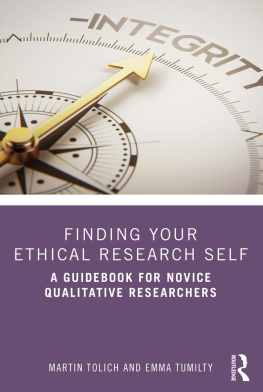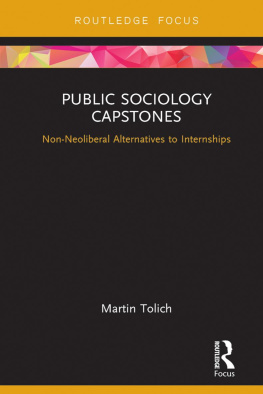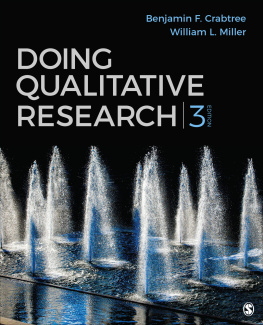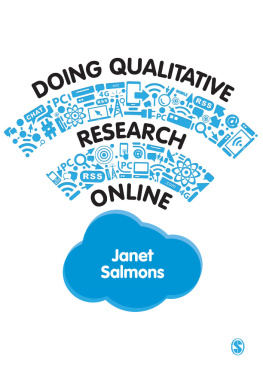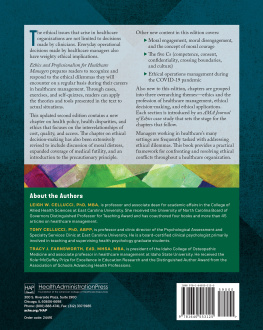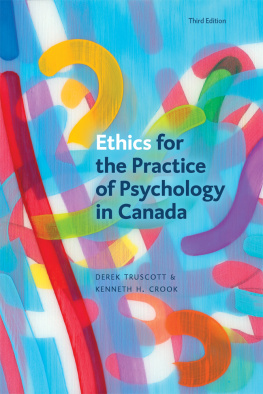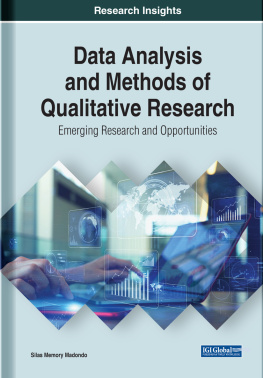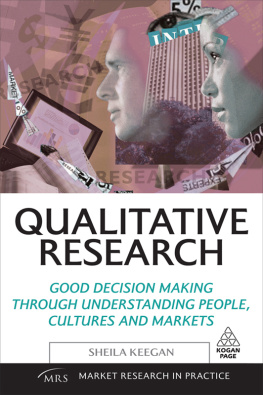Finding Your Ethical Research Self
Finding Your Ethical Research Self introduces novice researchers to the need for ethical reflection in practice and gives them the confidence to use their knowledge and skill when, later as researchers, they are confronted by big ethical moments in the field.
The 12 chapters build on each other, but not in a linear way. Core ethical concepts like consent and confidentiality once established in the early chapters are later challenged. The new focus becomes how to address qualitative research ethics when confidentiality and consent take on a limited form. This approach helps students understand that the application of concepts always requires thoughtful adaptation in different contexts and the book provides guidance on how to do this. Classroom/workbook exercises develop alternative solutions to create process consent, internal confidentiality, and engage reference groups, as examples. The first eight chapters allow students to develop their ethical research self before thinking through how they might address formal ethics review. Formal ethics review is deliberately not introduced until emphasises the key message by providing examples of researchers dilemmas in the field using vignettes and discussion. By providing these examples, students become aware that these can arise, explore how they might arise, and recognise how they might deal with them in the moment when they are unavoidable.
With numerous examples of ethical dilemmas and issues and questions and exercises to encourage self-reflection, this reflexive, learn-by-doing model of research ethics will be highly useful to the novice researcher, undergraduate, and postgraduate research student.
Martin Tolich is Associate Professor, Sociology, Gender and Social Work, Otago University, New Zealand. He is a specialist in qualitative research and research ethics, publishing books for Sage, Oxford University Press, Pearson, and Routledge, and in 2008 founded the independent New Zealand ethics committee.
Emma Tumilty is a bioethicist at Deakin University, Australia. Her work in research ethics is informed by time on ethics review committees, providing research ethics consultation services, and developing her own ethical practice. She is a member of AEREO (https://www.med.upenn.edu/aereo/) and a book review editor for the International Journal of Feminist Approaches to Bioethics.
Finding Your Ethical Research Self is engaging and effective, avoiding a dry conceptual approach to key issues, instead, bringing the topic alive. Student feedback was very positive, suggesting they found the books workshops to be highly effective in addressing key tenets of qualitative research ethics facilitating their learning. Associate Professor Mark Falcous, School of Physical Education, Otago University, New Zealand
The workshop gave students a rich opportunity to discuss real-life dilemmas that qualitative researchers typically experience. It also turned out to be a valuable experience to engage with a set of essential principles for those who do qualitative research, such as belonging to a reference group, within which researchers can reflect on and discuss ethical issues inherent to research. Dr. Antnio Pedro Costa, University of Aveiro, Portugal
First published 2021
by Routledge
2 Park Square, Milton Park, Abingdon, Oxon OX14 4RN
and by Routledge
52 Vanderbilt Avenue, New York, NY 10017
Routledge is an imprint of the Taylor & Francis Group, an informa business
2021 Martin Tolich and Emma Tumilty
The right of Martin Tolich and Emma Tumilty to be identified as authors of this work has been asserted by them in accordance with sections 77 and 78 of the Copyright, Designs and Patents Act 1988.
All rights reserved. No part of this book may be reprinted or reproduced or utilised in any form or by any electronic, mechanical, or other means, now known or hereafter invented, including photocopying and recording, or in any information storage or retrieval system, without permission in writing from the publishers.
Trademark notice: Product or corporate names may be trademarks or registered trademarks, and are used only for identification and explanation without intent to infringe.
British Library Cataloguing-in-Publication Data
A catalogue record for this book is available from the British Library
Library of Congress Cataloging-in-Publication Data
Names: Tolich, Martin, author.
Title: Finding your ethical research self : a guidebook for novice qualitative researchers / Martin Tolich and Emma Tumilty.
Description: Abingdon, Oxon ; New York, NY : Routledge, 2021. | Includes bibliographical references and index.
Identifiers: LCCN 2020043725 (print) | LCCN 2020043726 (ebook) | ISBN 9780367174774 (hbk) | ISBN 9780367174781 (pbk) | ISBN 9780429056994 (ebk)
Subjects: LCSH: Qualitative researchMoral and ethical aspects. | Social sciencesResearchMoral and ethical aspects.
Classification: LCC H62 .T56 2021 (print) | LCC H62 (ebook) | DDC 174/.900142dc23
LC record available at https://lccn.loc.gov/2020043725
LC ebook record available at https://lccn.loc.gov/2020043726
ISBN: 978-0-367-17477-4 (hbk)
ISBN: 978-0-367-17478-1 (pbk)
ISBN: 978-0-429-05699-4 (ebk)
Typeset in Bembo
by SPi Global, India
Dedicated to our students who have taught us so much about research ethics while demonstrating a willingness to reveal and recalibrate their moral compass.
T his book would not have been possible had not so many courageous people written reflections on their research practice in methodological statements (Alice Goffman, William Foote Whyte) or memoirs (Sudhir Venkatesh) or painful reflective notes (Carolyn Ellis, Scheper-Hughes) or paradigmatic reflective shifts (Guillimen and Gillam). Readers of this book must acknowledge that the way forward is on their shoulders. Many of the learning moments in this book have emerged from reflections on Tolichs ethical practice.
Why write the text, the cartoons [] say it all.
Professor Emeritus
F igure 1 documents the origin of this book. It illustrates a real event when one of the authors was teaching a postgraduate class in qualitative research ethics at the University of Otago in 2016. The class began on day one with a provocation to see if the five postgraduate students could identify ethical conundrums that may not sit well with them and to see if they could come up with some solutions to this conundrum. As the cartoon shows, they did. This book developed from that single moment. Tolich assigned no reading for the first class. His goal was to make the students central to their own learning (Harland & Wald, 2018; Kilburn et al., 2014; Lewthwaite & Nind, 2016). The five students were novices to research ethics (Tolich et al., 2017) and self-confessed no knowledge of qualitative research ethics. They said:
I knew pretty much nothing. I knew a little about ethics committees, but nothing about the actual lived ethics experience.
Prior to class, the only understanding of [research] ethics I had was a standard textbook definition: conducting research ethically means to do research in a safe and secure manner where participants wellbeing and interests are safeguarded during the pursuit of knowledge.
My prior knowledge of qualitative ethics was limited to writing a paragraph for ethical consideration for undergrad courses.
I began this class with what I felt was a reasonably comprehensive knowledge of the basic ethical concepts that might be encountered within quantitative social science research. What I quickly learnt is just how different qualitative and quantitative research ethics are.

